Best EVs in Canada for 2024
Shopping for an electric vehicle? These are the best EVs available in Canada for value, families, long-range driving, interior space, charger access and more.
Advertisement
Shopping for an electric vehicle? These are the best EVs available in Canada for value, families, long-range driving, interior space, charger access and more.
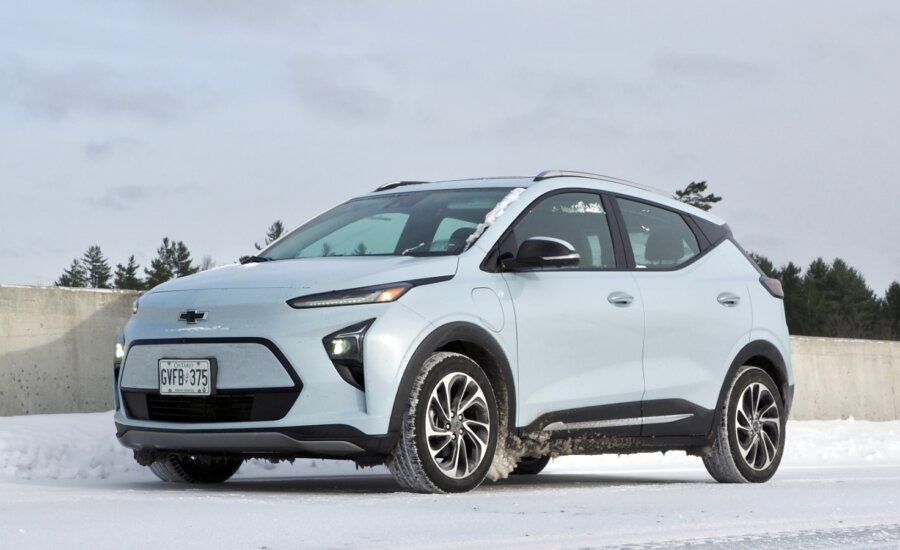
Electric vehicles (EVs) are more popular than ever with Canadian drivers. In 2017, EVs accounted for just 1% of new vehicles registered in Canada. By the end of 2022, that figure had climbed to nearly one in 10—and automakers are taking note. More and more EVs are hitting the market, giving car and SUV buyers a wide array to choose from, and the EV selection on the used car market is growing, too.
To help you find the ideal EV for your needs and preferences, we’ve put together a comprehensive guide to EVs in Canada. It delves into both the newest and most proven EVs, broken into categories, and provides expert insights, scoring, analysis and testing notes. We share the strengths and weaknesses of each model, along with our top picks in each category, so you can make an informed decision.
Whether you’re a city dweller looking for a sporty electric runabout to spice up daily commuting, or a family after a flexible people-mover that never needs to stop for gas, we’ve got you covered.
Are you thinking about buying a hybrid or electric vehicle (EV)? 🚗🔌⚡️🚘
— MoneySense (@MoneySense) November 30, 2023
With 2024 approaching, you’ve got plenty of great EV options to choose from, plus more on the way.
Currently, 20 automakers sell EVs in Canada. Some sell just a single EV model, like the Mazda MX-30, Volkswagen ID.4, Cadillac Lyriq and Jaguar I-Pace. Others, including Kia, Tesla, Nissan, Ford and Audi, sell numerous electric models. Further, some manufacturers, like Tesla, Rivian, Vinfast, Polestar and Lucid, only sell EVs and don’t manufacture gasoline-powered cars at all. Also, in 2024, we’ll see the launch of the all-new Polestar 5, Jeep Recon, Honda Prologue, Volkswagen ID. Buzz, Porsche Macan EV and more.
Next year will be an exciting one for the EV marketplace. Sales growth is expected to continue, and both automakers and governments are investing in battery manufacturing and charging infrastructure. The industry is pushing ahead—and making it easier than ever for Canadian car buyers to say “yes” to going electric. (Curious about the price of car insurance? See what it costs to insure an EV.) See our top picks below, and click the links to read our full reviews.
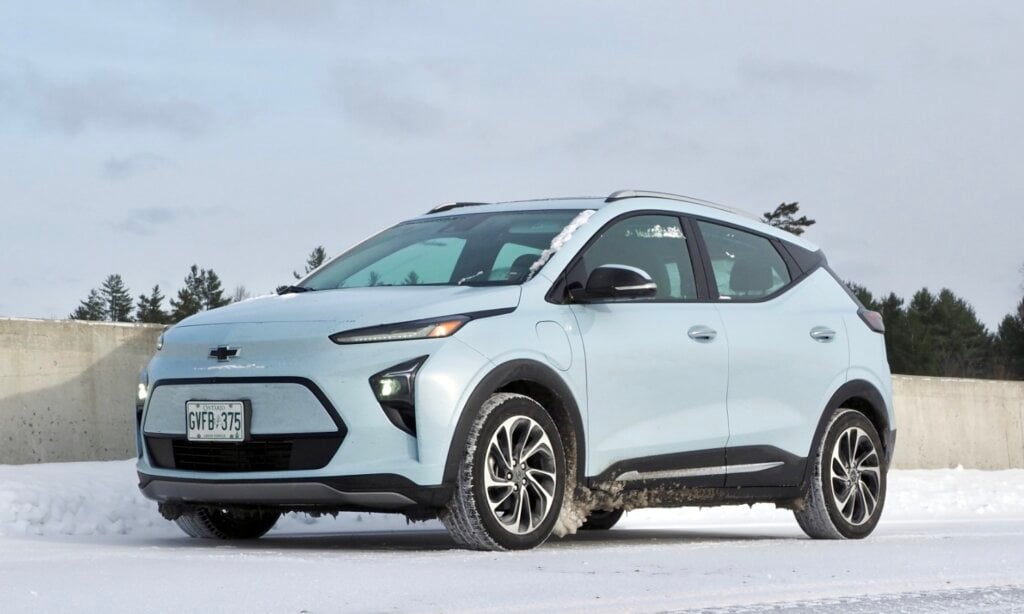
The Chevrolet Bolt hatchback and its SUV-inspired sibling, the Bolt EUV, were shoo-ins for our list of top EVs in Canada, given their attractive combination of price, capability and features. How much do they cost? These cars have the most affordable starting prices among EVs, at $38,943 and $40,548, respectively (before incentives). Even with these modest sticker prices, you’ll enjoy plenty of features and more driving range, compared to similar front-wheel-drive competitors.
Read our review of the Chevrolet Bolt EV / EUV.
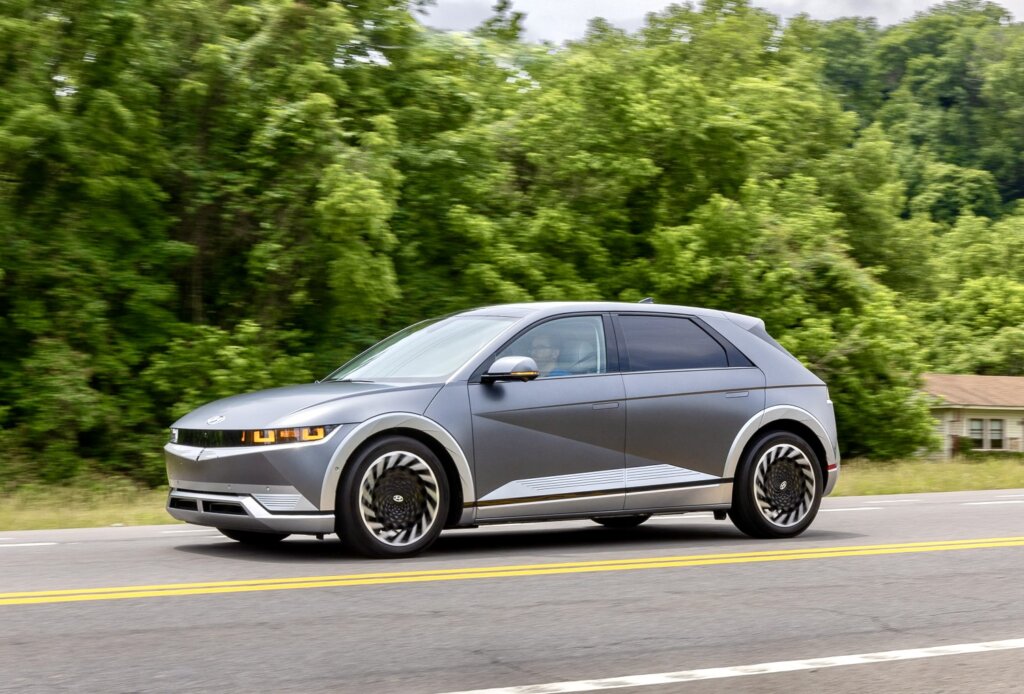
If you need an EV that the whole family will love, this is it. The Hyundai Ioniq 5 provides excellent stability and comfort on the road, plus the latest in Hyundai’s safety and connectivity tech. It’s also incredibly roomy, with ample leg room in the backseat and more cargo space than its closest competitors. Critics adore this car, too, showering the Ioniq 5 with praise and awards. With features like these, the only question is where you’ll go on your next road trip.
Read our review of the Hyundai Ioniq 5.
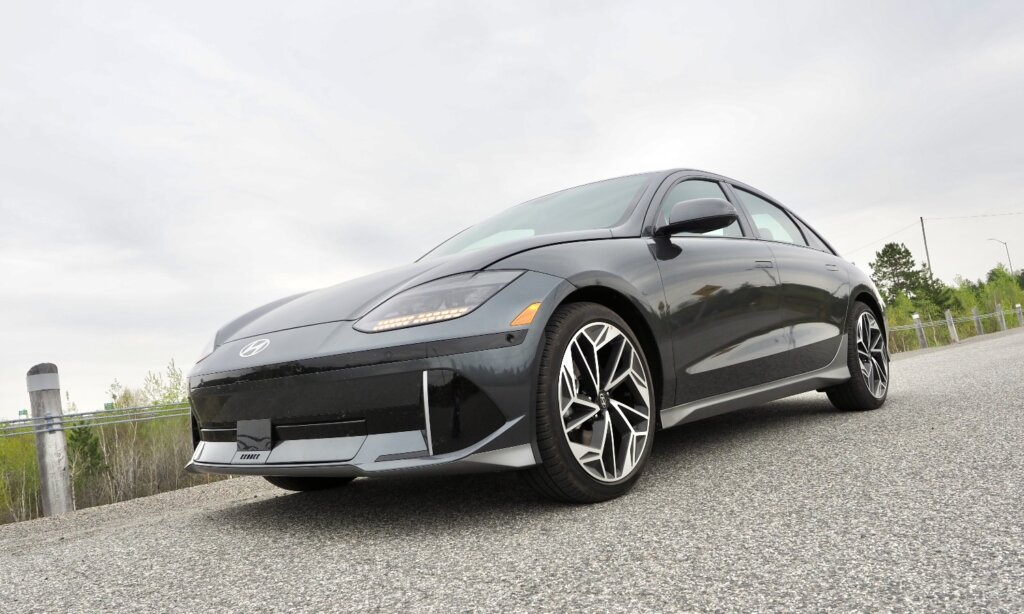
Yes, another Hyundai Ioniq has made our list of best EVs in Canada. When it comes to range for the dollar, the Hyundai Ioniq 6 Preferred Long-Range delivers maximum return on your investment, with as much as 30% more range than far pricier rivals. Other enticing details: head-turning looks, super-fast charging (0% to 80% in less than 20 minutes), a smooth driving experience, an all-wheel drive option and much more to enjoy.
Read our review of the Hyundai Ioniq 6 Preferred Long-Range AWD.
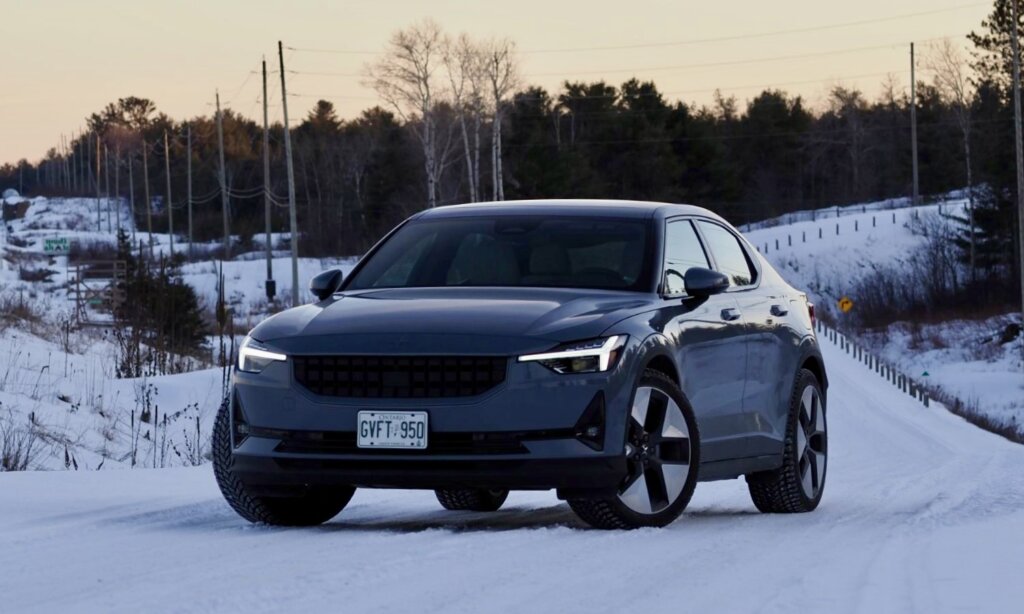
You may be less familiar with the Polestar brand than the other names on our list (it hails from Sweden), but you’ll want to get to know the Polestar 2. This sporty four-door sedan is available with several options and packages. It’s also a lot of fun to drive, with its quick steering and responsive handling. It performs particularly well on ice and snow—good for our Canadian winters—and is more engaging to its driver than many competitors, thanks in part to its electronic assists. (Check out the MoneySense guide to winter tires.)
Read our review of the Polestar 2.
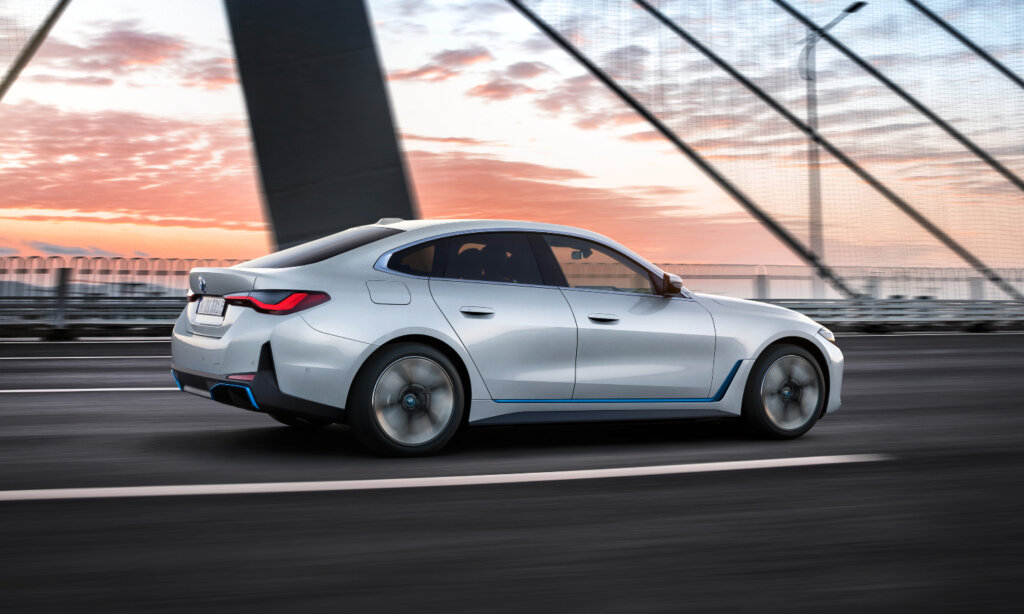
Plenty of luxury EVs have come onto the market. The BMW i4 is head-and-shoulders above the rest, having earned the top scores for steering, handling, driver position and ergonomics at the Canadian Car of the Year awards this year. You’ll also enjoy BMW’s impressive technology and connectivity features. In 2024, you’ll be able to choose from four i4 models, with starting prices ranging from about $55,000 to $70,000.
Read our review of the BMW i4.
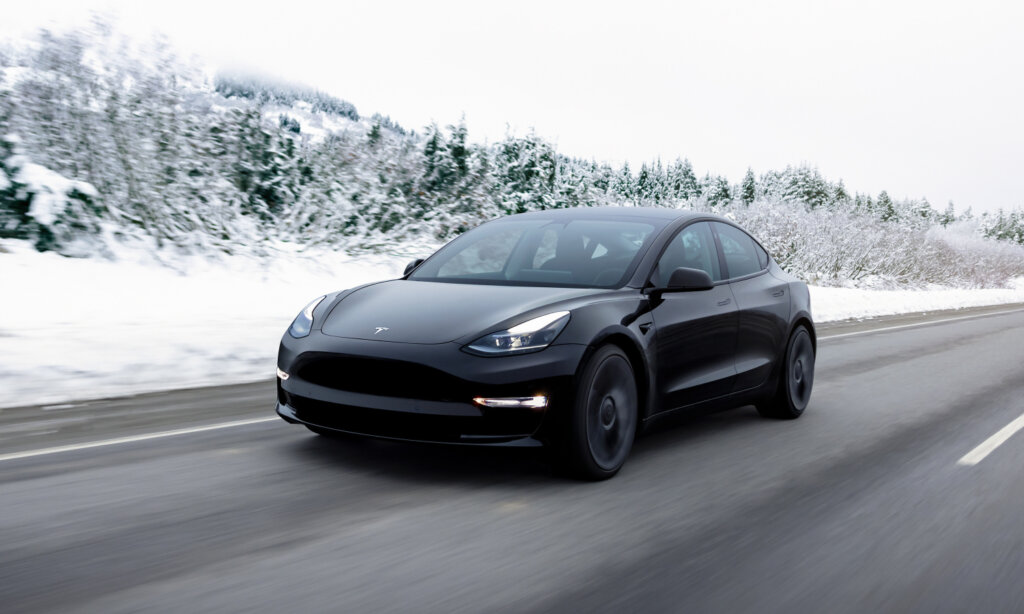
Tesla’s EV charging network is second to none in Canada, making it easy to keep the Model 3 Long Range AWD powered up on longer trips. How long? This top-of-the-line EV offers one of the best driving ranges in Canada and in the industry, at 576 kilometres. Drivers will also admire the Model 3’s interfaces and apps, and appreciate the ability to “pre-condition” the battery for even faster top-offs at a supercharger stop.
Read our review of the Tesla Model 3 Long Range AWD.
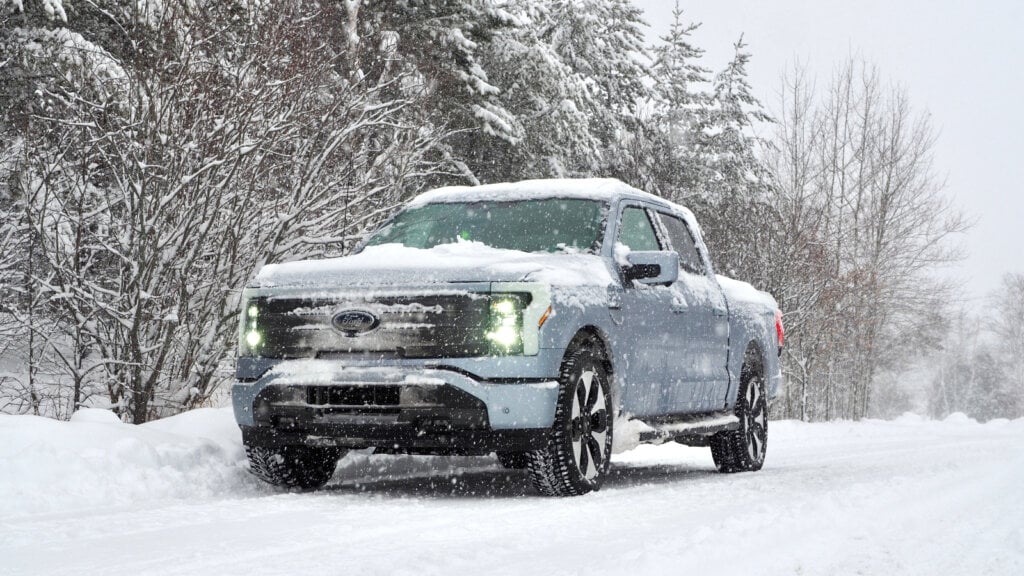
The Ford F-150 Lightning is the all-electric version of Ford’s best-selling pickup truck. Canadian EV buyers can choose from various battery and motor combinations, and the F-150 Lightning comes with the latest in connectivity, safety, and convenience tech—along with fully digital instrumentation, standard 4×4 and an available range of over 480 kilometres. Plus, the truck doubles as a giant battery, able to power your campsite, work site or even home, if needed.
Read our review of the Ford F-150 Lightning.
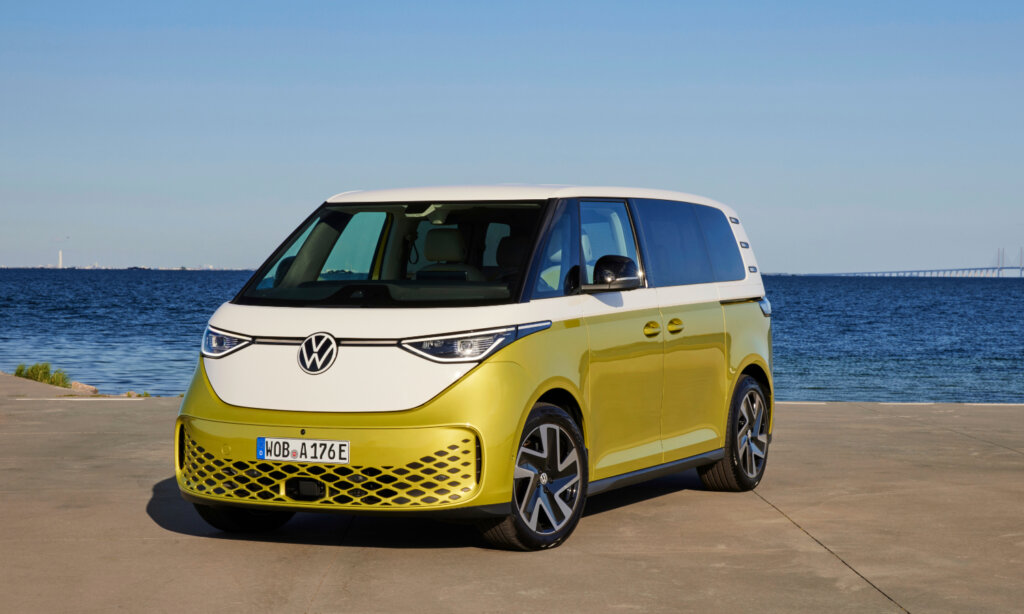
Launching in 2024, the Volkswagen ID. Buzz is a little bit retro plus a whole lot of room. In fact, aside from the uber-expensive Tesla Model X, it will be the most spacious EV in Canada, with 1,233 litres of cargo capacity and a maximum cargo volume of 2,593 litres. It seats up to seven passengers, and you can remove the seats for large loads (large grocery shops, anyone?). The ID. Buzz will be offered in rear-wheel and all-wheel drive models, with an estimated price of $45,000.
Read our review of the Volkswagen ID. Buzz.
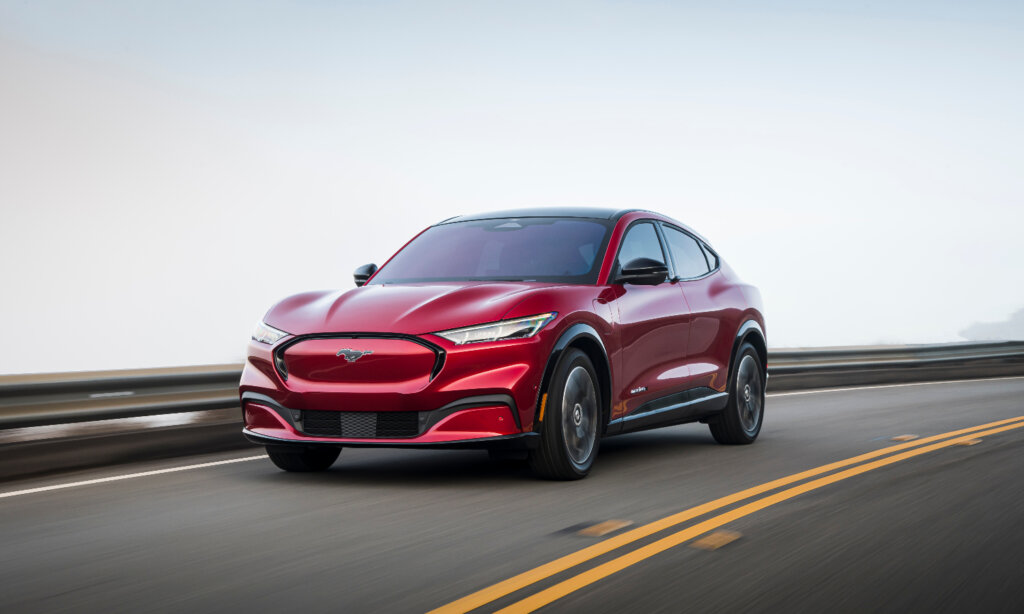
The Ford Mustang Mach-E made its debut in Canada and the world in 2020, to wide acclaim from car reviewers, buyers and industry awards programs. This roomy ride did very well at the 2022 Canadian Car of the Year awards, earning top scores for cargo, refinement, ride comfort and features. Speaking of features, the Mach-E has a strong safety and technology package. Plus, it’s available with all-wheel-drive, a feature that many drivers consider a must-have.
Read our review of the Ford Mustang Mach-E.
This report is the culmination of professional analysis and evaluation of the latest products and trends in the auto industry. It takes into account key factors such as range, winter-readiness for Canadian shoppers, price, range, value, dimensions and performance data. The methodology incorporates real-world testing data, along with publicly available data and scoring metrics from the Automotive Journalists Association of Canada (AJAC), a panel of professional evaluators who score and compare new vehicle models as part of an annual data-driven testing program.
Drawing upon my extensive experience in this field, I’ve also included personal recommendations to friends, family, and viewers. The aim is to guide readers towards the top picks for EVs across various segments and use-case scenarios.
Share this article Share on Facebook Share on Twitter Share on Linkedin Share on Reddit Share on Email
As I am retired, I travel and live in Asia up to 6 months at a time. I have attended Auto shows, with e-vehicles displayed. When I ask this question, there is never a positive reply, just guesses. Also have written to “experts”, same response, guesses. I presently have two ICE vehicles, a Kia and Toyota. Prior to departing, I disconnect the battery, add stabilizer and park. In 25 years, never a problem. My Question: Can an electric vehicle be stored for long periods and how to prepare? Does the lengthy time not plugged in affect the range later? If it is fully charged, will it deplete over time? Would it start instantly like my ICE vehicles do? Any information on this subject would be appreciated. Thank you
Hey Greg,
An EV can be stored for long periods of time, however each manufacturer generally has different guidelines and procedures. That said, an EV battery doesn’t like to sit at a high state of charge for a long period of time. For extended periods of time, it would be advised to have an 80-90% charge and then shut down the vehicle completely. The length of time not plugged in shouldn’t have any long term effects on the battery health, however there is a potential of damage if the battery is completely depleted before you return. There are many factors that could cause the battery to still deplete over time. First of all, some car features (depending on the car) should be disabled. For example, Tesla has a cellular internet connection to allow you to update the status of the car on their mobile app. If this is left turned on, the car would wake frequently to update. Ambient temperature will also be a factor. If it gets cold (close to freezing), the battery management system will trigger the heater to keep the pack warm. As long as the battery has sufficient charge it would instantly start like any of your previous ICE vehicles. That said, If you’re going to put the vehicle into storage for longer than 1 month, I would set the vehicle to 50% charge and plug in a standard 110v outlet. That would allow the car to maintain a charge, while letting the battery management system ensure the temperature of the pack is maintained. If you can’t do the above, then the right EV might not be quite ready for you yet.